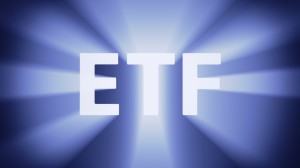 The Financial Industry Regulatory Authority (FINRA) ordered Wells Fargo Clearing Services, LLC and Wells Fargo Advisors Financial Network, LLC (Wells Fargo) to pay more than $3.4 million in restitution to customers for unsuitable recommendations of volatility-linked exchange-traded products (ETPs) and supervisory failures concerning the sales of these products. FINRA found that between July 2010, and May 2012 Wells Fargo brokers recommended volatility-linked ETPs without fully understanding their risks and features.
The Financial Industry Regulatory Authority (FINRA) ordered Wells Fargo Clearing Services, LLC and Wells Fargo Advisors Financial Network, LLC (Wells Fargo) to pay more than $3.4 million in restitution to customers for unsuitable recommendations of volatility-linked exchange-traded products (ETPs) and supervisory failures concerning the sales of these products. FINRA found that between July 2010, and May 2012 Wells Fargo brokers recommended volatility-linked ETPs without fully understanding their risks and features.
These complex products are extremely difficult to understand and are easy to improperly sell. In recent years many exotic ETN have been created that either use leverage or futures exposure to replicate an index. However, many of these investments are appropriate only for institutional investors and short term trading for various reasons.
The most popular volatility-linked ETP is the Chicago Board Options Exchange Volatility Index (VIX). The VIX tends to be negatively correlated with broader financial indexes and rises in period of market distress. However, it is not possible to directly invest in the VIX and instead investments are made in VIX derivatives such as futures or options. The three main Volatility ETPs offered to retail investors are VXX, VXZ, and VIXY. Volatility ETPs attempt to provide exposure to the VIX through VIX futures contracts but these Volatility ETPs do not track the VIX Accordingly, VIX investments held for long periods of time will almost certainly lose value.
FINRA found that Wells Fargo advisors mistakenly believed that the products could be used as a long-term hedge on their customers’ equity positions in the event of a market downturn. When in fact, VIX ETPs are generally short-term trading products that degrade significantly over time and should not be used as part of a long-term buy-and-hold investment strategy.
FINRA found Wells Fargo’s supervisory procedures regarding VIX ETPs to be deficient. For example, Wells Fargo prevented retail brokerage customers from purchasing Non-Traditional ETPs unless they had the most speculative investment objective. Wells Fargo supervisors were also required to contact retail brokerage customers who held Non-Traditional ETPs for longer than 30 days and explain the risks of continuing to hold the products.
However, FINRA found that Wells Fargo did not implement similar restrictions regarding Volatility ETPs or provide reasonable guidance to brokers regarding their recommendations of Volatility ETPs until May 2012. By late 2016, Wells Fargo restricted sales of Non-Traditional ETPs, including Volatility ETPs, by prohibiting all purchases of these securities in any retail brokerage customer accounts.
At Gana Weinstein LLP, our attorneys are experienced representing investors who have suffered securities losses due to the mishandling of their accounts. Claims may be brought in securities arbitration before FINRA. Our consultations are free of charge and the firm is only compensated if you recover.
 Securities Lawyers Blog
Securities Lawyers Blog

